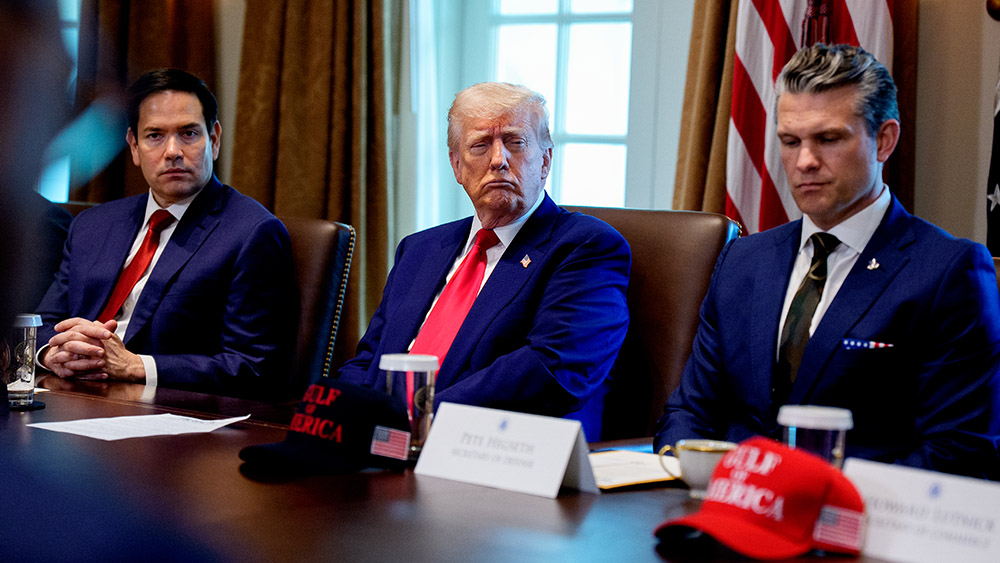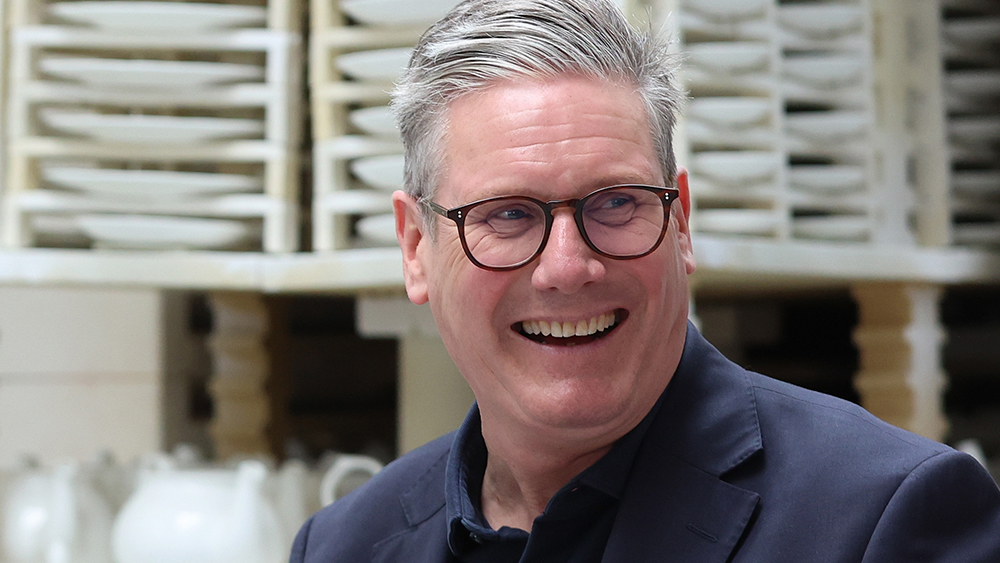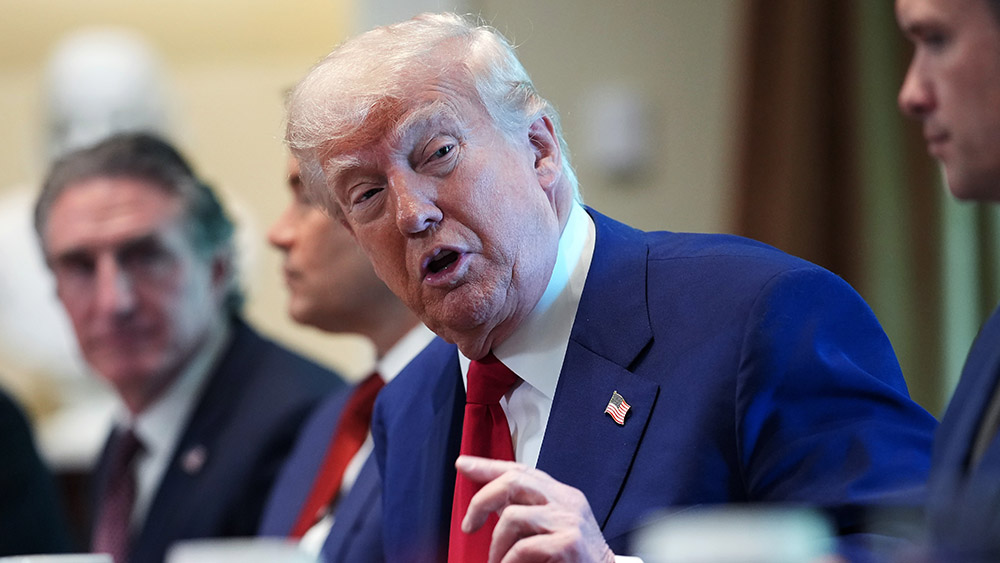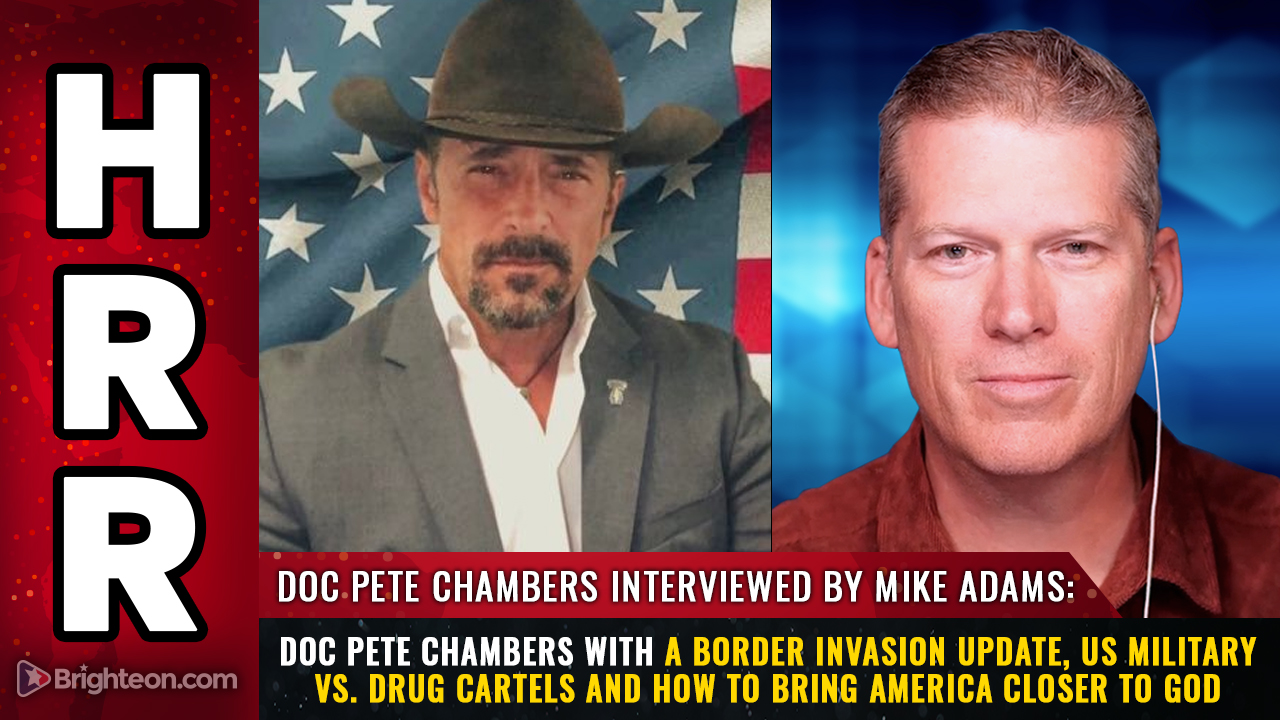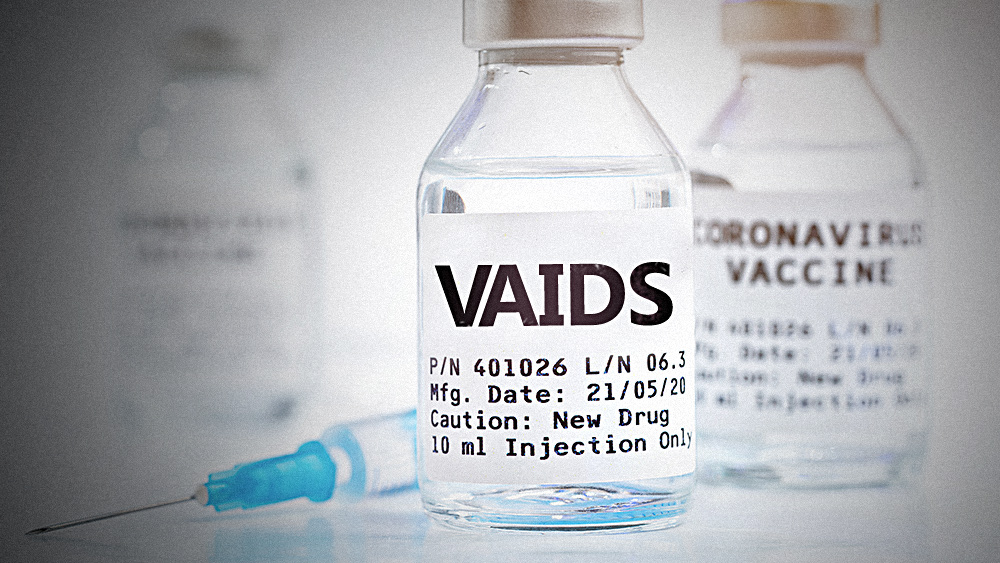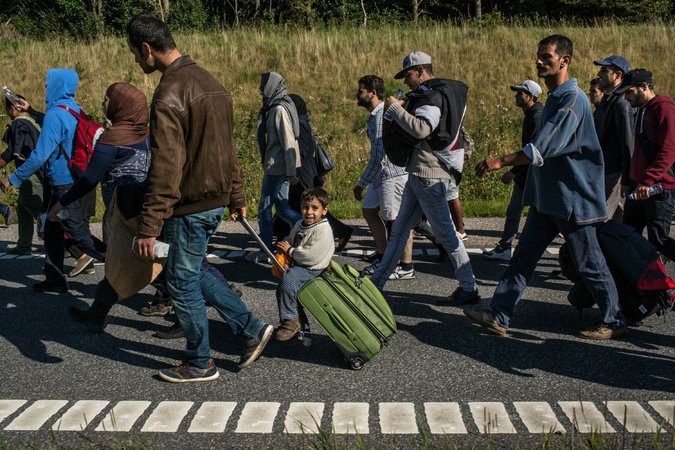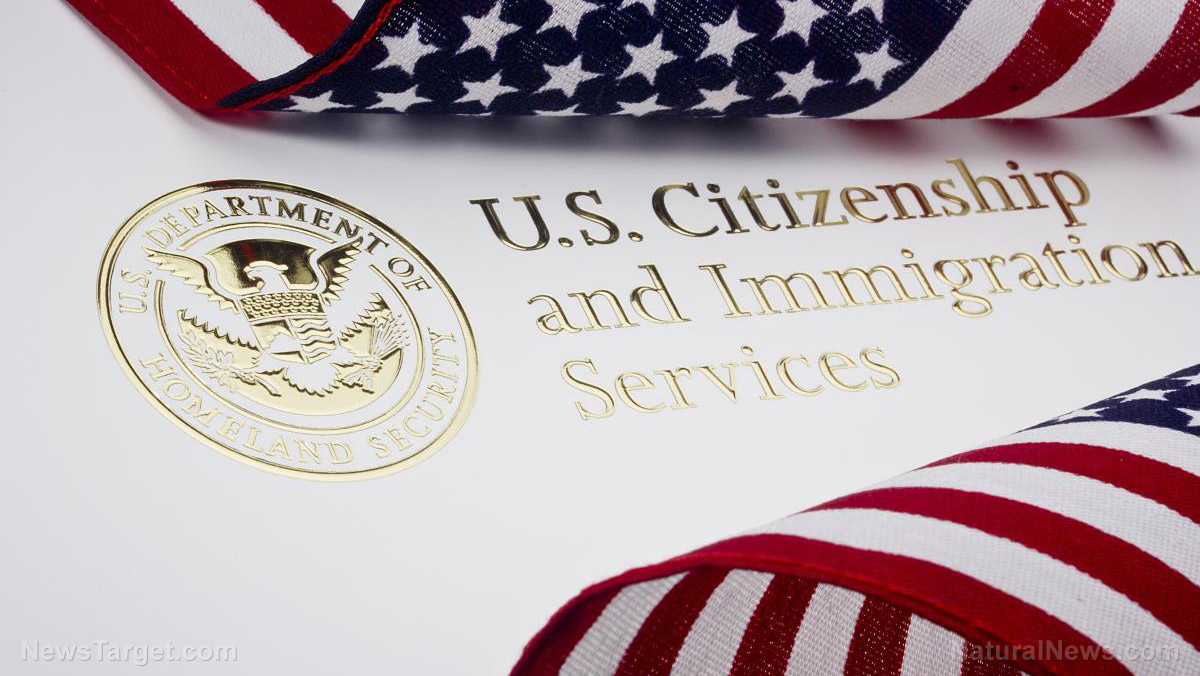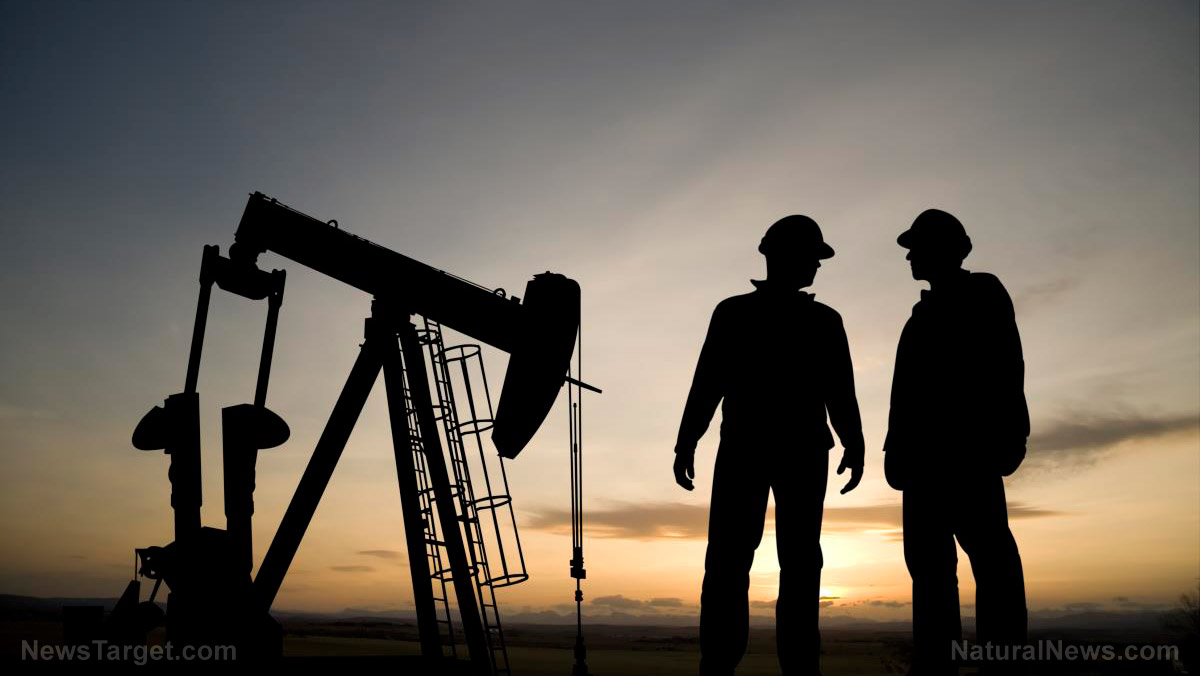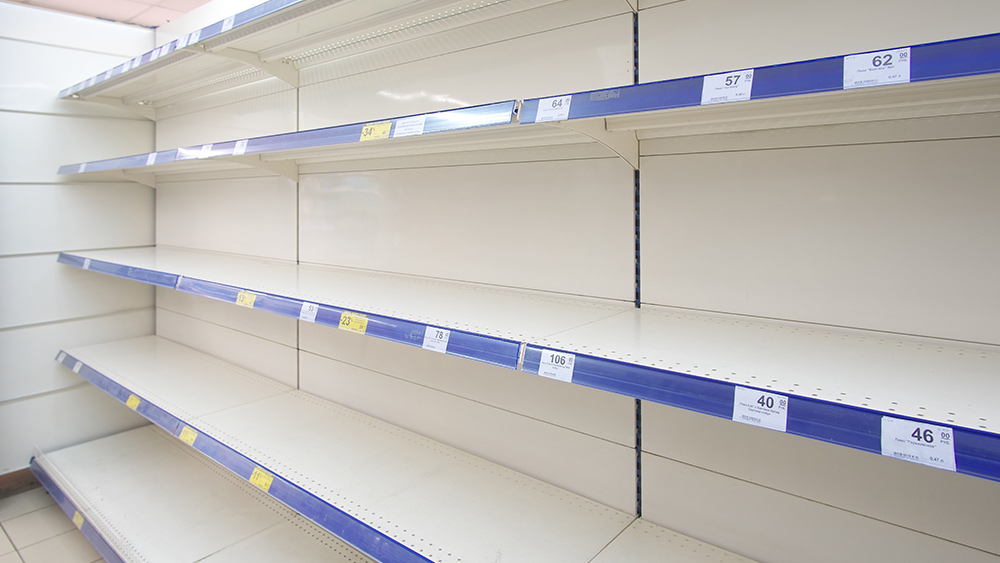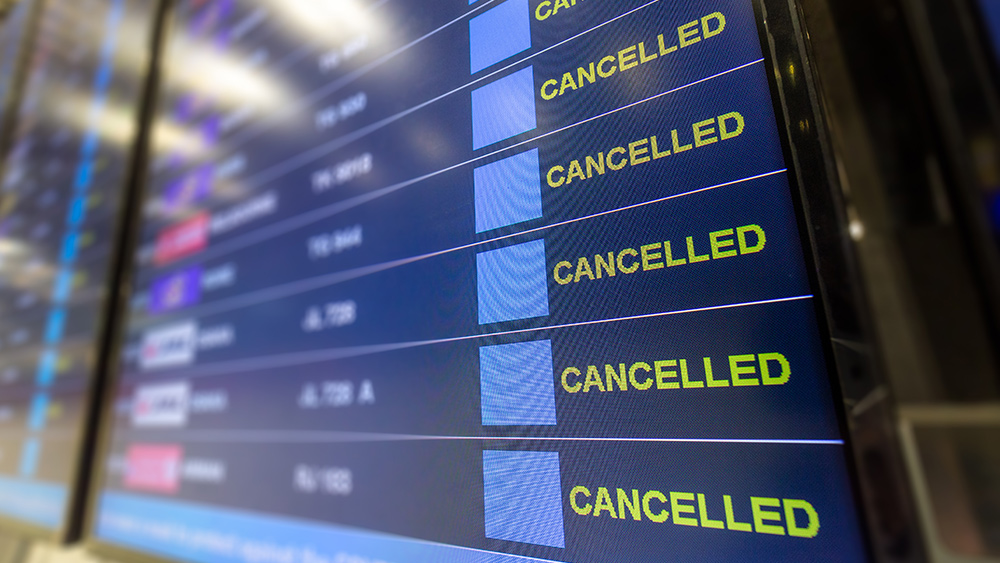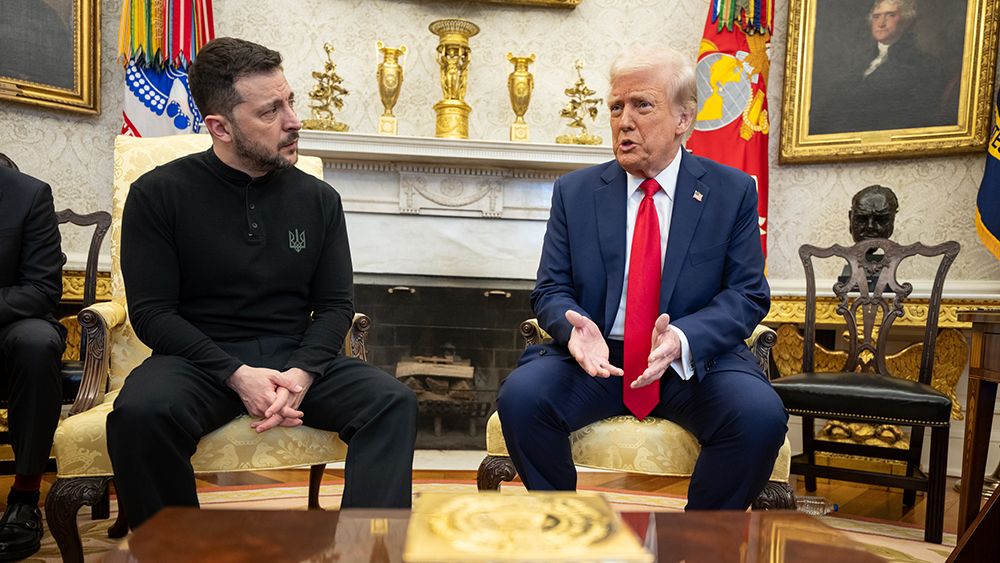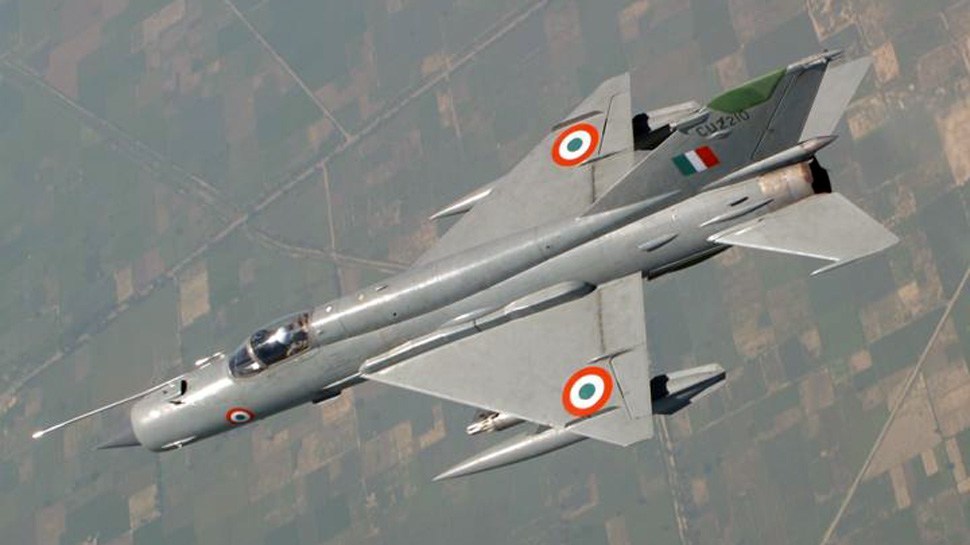Putin warns of potential nuclear escalation amid Ukraine conflict, accuses West of provocation
05/06/2025 / By Belle Carter
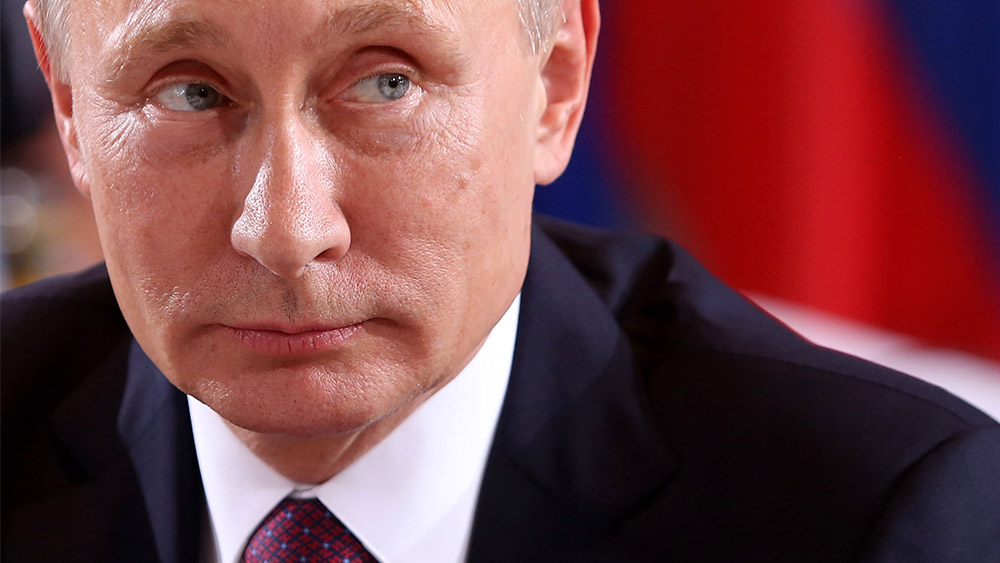
- Russian President Vladimir Putin warned that Russia may use nuclear weapons if Ukraine employs Western-supplied long-range arms to strike deep inside Russian territory, framing it as a response to threats against sovereignty.
- Russia’s revised 2023 doctrine allows for nuclear retaliation if Russia or its ally Belarus faces aggression (conventional or nuclear), with officials warning that NATO troop deployments in Ukraine could trigger direct conflict.
- Putin accused the West of underestimating Russia’s willingness to use nuclear weapons, calling such assumptions dangerous.
- Russia abandoned its Cold War “no first use” policy in the 1990s, adopting a more aggressive nuclear posture under Putin. The Ukraine war has further blurred the lines between conventional and nuclear deterrence.
- Experts warn of miscalculation due to weak U.S.-Russia communication channels. Putin’s threats aim to deter NATO while testing Western unity, raising fears of a regional war spiraling into global conflict.
Russian President Vladimir Putin has issued a stark warning that Moscow could resort to nuclear weapons if Ukraine uses Western-supplied long-range arms to strike deep inside Russian territory.
Speaking during a meeting with senior international editors. Putin emphasized that the Kremlin’s nuclear doctrine should not be dismissed as mere rhetoric. His remarks come amid heightened tensions with NATO and escalating Western military support for Ukraine. The threat underscores the precarious balance of power in Europe and raises fears of a broader conflict with global consequences. (Related: Putin confirms North Korea sent thousands of troops to fight in Ukraine as Russia-NK alliance deepens.)
Putin’s latest comments reinforce Russia’s long-standing nuclear posture, which reserves the right to use atomic weapons if the country’s sovereignty or territorial integrity is threatened. “If someone’s actions threaten our sovereignty and territorial integrity,” Putin said, “we consider it possible to use all means at our disposal.” The Russian leader accused the West of assuming Moscow would never deploy its nuclear arsenal, warning that such assumptions were dangerously mistaken.
The updated nuclear doctrine, revised in November 2023, explicitly allows for a nuclear response if Russia or its ally Belarus faces aggression, whether conventional or nuclear, from an adversary. Sergey Shoigu, secretary of Russia’s National Security Council, reiterated this stance, stating that foreign troop deployments in Ukraine could trigger a direct NATO-Russia confrontation, potentially spiraling into nuclear war.
Historical context: Russia’s nuclear posture since the Cold War
Russia’s nuclear doctrine has evolved since the Cold War, but its core principle, deterrence through the threat of massive retaliation, remains intact. During the Soviet era, Moscow maintained a “no first use” policy, but this was abandoned in the 1990s as Russia’s conventional military weakened. The current doctrine reflects a more aggressive stance, particularly under Putin, who has repeatedly leveraged nuclear threats to deter NATO expansion.
The war in Ukraine has further hardened Russia’s position. In December 2024, Putin suggested that hypersonic missiles like the Oreshnik could reduce reliance on nuclear weapons, but his latest remarks indicate that the nuclear option remains firmly on the table. Analysts warn that Russia’s doctrine blurs the line between conventional and nuclear warfare, increasing the risk of miscalculation.
Western leaders have condemned Putin’s rhetoric, with NATO officials calling it reckless and destabilizing. The U.S. and EU have repeatedly stated that they will not be intimidated by nuclear threats, but privately, officials acknowledge the risks of escalation. Some European nations have debated sending troops to Ukraine post-ceasefire, a move Shoigu warned would be seen as an act of war.
Putin, however, insists that Russia has “enough forces and means” to achieve its objectives without nuclear escalation. In an interview with Russian journalist Pavel Zarubin, he accused the West of trying to “provoke us, wanted to force us to make mistakes.” He added, “There has been no need to use [nuclear] weapons… I hope it won’t be necessary.”
The broader implications for global security
The specter of nuclear conflict has loomed over the Ukraine war since its outset, but Putin’s latest statements mark a deliberate escalation in rhetoric. His warning that Russia would target all members of an attacking military bloc, including nations hosting strike capabilities, raises the stakes for NATO. The doctrine also suggests that Moscow could interpret intelligence about an impending attack as justification for a preemptive nuclear strike.
Experts warn that the lack of direct communication channels between Moscow and Washington heightens the risk of accidental conflict. Unlike during the Cold War, when hotlines and treaties provided safeguards, today’s diplomatic landscape is more fragmented, with trust at historic lows.
For now, Putin insists that Russia can achieve victory without crossing the nuclear threshold, but his rhetoric ensures that the world cannot afford to look away. As tensions simmer, the international community faces a critical challenge: preventing a regional war from spiraling into a global catastrophe.
President Donald Trump says the ceasefire deal is making progress. Watch this video.
This video is from Cynthia’s Pursuit of Truth channel on Brighteon.com.
More related stories:
Trump and Putin ready to talk as Rubio calls for PEACEFUL END to Russia-Ukraine war.
Trump revives push for NUCLEAR ARMS REDUCTION talks with Russia and China.
Sources include:
Submit a correction >>
Tagged Under:
big government, ceasefire, chaos, Cold War, Dangerous, foreign relations, insanity, national security, NATO, nuclear doctrine, nuclear war, nuclear weapons, peace talks, Russia, Ukraine, Ukraine war, violence, weapons technology, WWIII
This article may contain statements that reflect the opinion of the author
RECENT NEWS & ARTICLES
COPYRIGHT © 2017 BIG GOVERNMENT NEWS

